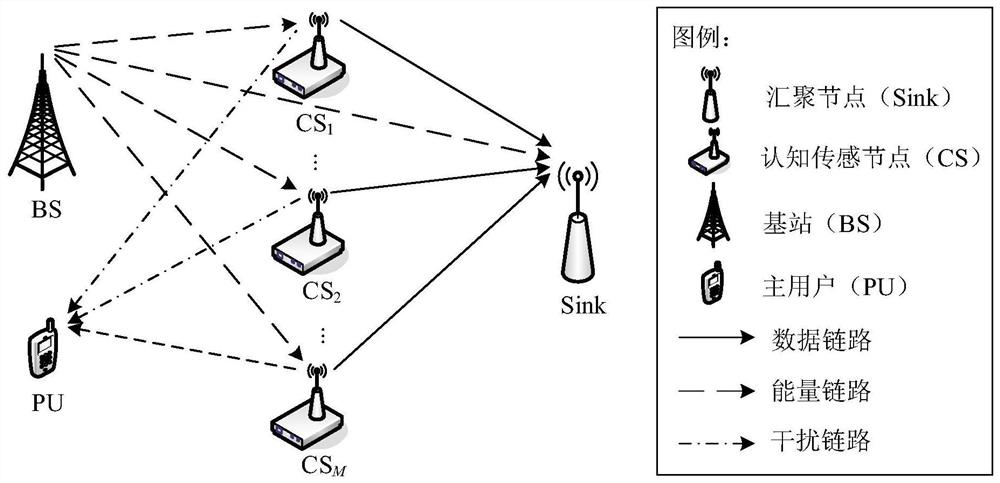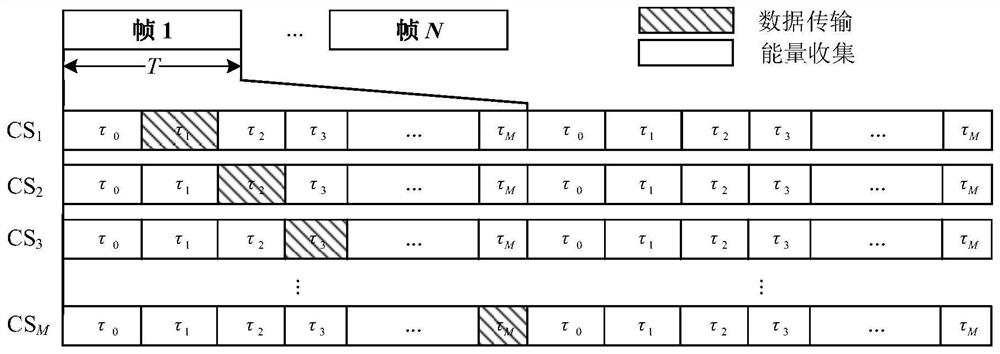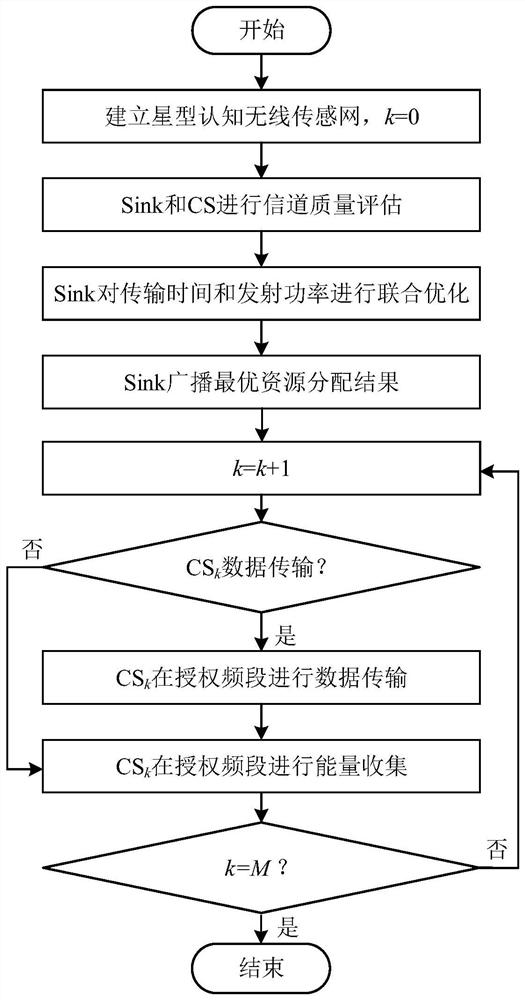A Method of Energy Harvesting and Power Control for Cognitive Wireless Sensor Networks
An energy harvesting and cognitive wireless technology, applied in the field of wireless sensor networks, can solve problems such as primary user interference, achieve the effects of solving channel congestion, improving spectrum utilization, and solving energy constraints
- Summary
- Abstract
- Description
- Claims
- Application Information
AI Technical Summary
Problems solved by technology
Method used
Image
Examples
Embodiment Construction
[0053] An energy harvesting and power control method for a cognitive wireless sensor network proposed by the present invention mainly includes the following implementation process: (1) Establish a network consisting of a sink node and multiple cognitive sensor nodes with energy harvesting capabilities Star-shaped cognitive wireless sensor network; (2) sink nodes and cognitive sensor nodes perform channel quality assessment; (3) sink nodes aim at maximizing network throughput, and the transmission time of multiple cognitive sensor nodes Combined optimization with transmit power to obtain the optimal resource allocation result; (4) The aggregation node broadcasts the optimal resource allocation result to the cognitive sensor nodes, and performs transmission scheduling for the cognitive sensor nodes; (5) Cognitive sensing nodes Nodes perform energy harvesting or data transmission.
[0054] The present invention will be described in detail below in conjunction with the accompanyin...
PUM
 Login to View More
Login to View More Abstract
Description
Claims
Application Information
 Login to View More
Login to View More - R&D
- Intellectual Property
- Life Sciences
- Materials
- Tech Scout
- Unparalleled Data Quality
- Higher Quality Content
- 60% Fewer Hallucinations
Browse by: Latest US Patents, China's latest patents, Technical Efficacy Thesaurus, Application Domain, Technology Topic, Popular Technical Reports.
© 2025 PatSnap. All rights reserved.Legal|Privacy policy|Modern Slavery Act Transparency Statement|Sitemap|About US| Contact US: help@patsnap.com



